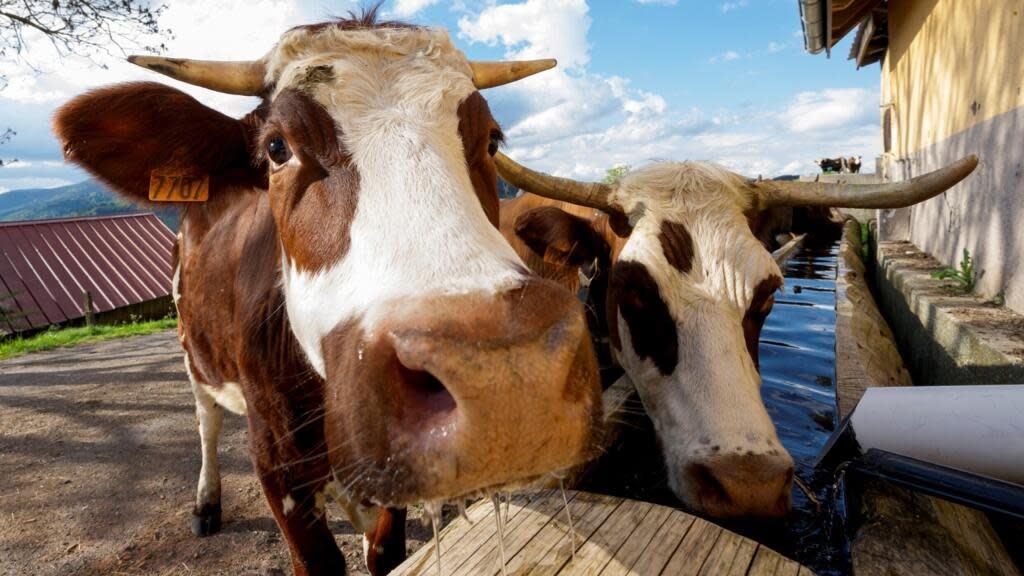Denmark rolls out plans for world’s first carbon tax on livestock

Denmark has announced plans to implement the world's first carbon tax on livestock emissions, starting in 2030.
Agriculture is the biggest source of emissions for Denmark, which is a major dairy and pork exporter, and the plan is aimed at helping the country meet its climate goals.
Methane emissions from cows, sheep and pigs will be targeted as part of efforts to reduce greenhouse gas emissions by 70 percent from 1990 levels.
The tax will start at 300 kroner ($43) per ton of carbon dioxide equivalent in 2030, increasing to 750 kroner ($108) by 2035, with a 60 percent income tax deduction.
Proceeds from the tax will be returned to the industry to support its green transition, the government said. The bill also includes the establishment of more than 600,000 acres of new forest areas.
Fears populist surge will upend Europe's pioneering green agenda
Farmers' protests in France: a long and sometimes deadly history
Tough negotiations
The plan follows extensive negotiations involving Denmark's centre-right government, farmers, industry representatives and unions.
“With this agreement, we are investing billions in the biggest transformation of the Danish landscape in recent times,” said Foreign Minister Lars Lokke Rasmussen.
“At the same time, we will be the first country in the world with a (carbon) tax on agriculture.”
Read more on RFI English
Read also:
French PM hopes to end agricultural crisis with new raft of measures
Europe's biggest honey producer stung by accusations of 'Frenchwashing'
Green credentials at stake as EU scrambles to save nature restoration law


